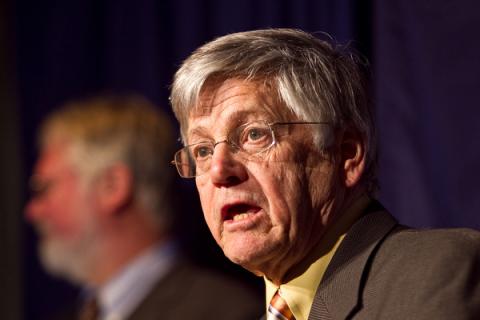By Kenneth Prewitt, AAPSS President
Driven by a sense of urgency, it is likely that every reader of this note is watching the sizable number of social scientists joining the Biden administration (including AAPSS Fellows); is reading recent, already influential, writing addressing the frailties of democracy; and is fiercely committed to replacing false news with evidence, deception with transparency. As scholars, we experience a renewed alertness to society’s self-inflicted wounds—the arms race, gross inequality, climate change, the dangers of ignoring public health’s best advice. These self-inflicted wounds are misguided behaviors and beliefs when taken to scale.
The AAPSS, especially through The ANNALS, does its part in explaining and interpreting these human mistakes, usually focusing on preventions and policy corrections. Now, however, we are asking: What more can we do? Vast, intractable self-inflicted wounds, here and around the world, loom. More than a half-century of strong research about racism has not changed conditions at anything close to what was confidently projected in the 1960s. A world that had one nuclear power now has nine. The “human dimensions of sustainable development” was a new idea in the 1980s. Four decades later climate scientists have come a long way; the social sciences, responsible for research on the “human dimensions,” not so much.
“What more can we do?” is the right question, though of course there is no single answer. Consider this messy cluster of chronic self-inflicted wounds to our polity: gerrymandering, filibustering, electoral college, voter suppression, supermajority. Historians have accounted for their origins, showing where and how democracy has undermined its own principles. This is a foundation on which to build. Political scientists are now on the case, finding democratic solutions to the wounds of democracy. The intelligence, determination, and cooperation they bring to this task is impressive. There are other examples. Racism has deep roots. These roots are being dug up by some of our very best scholars, many bringing personal experience to that task. It is premature to declare victory; confidence that we are moving in the right direction is not premature.
Self-inflicted wounds out of the past now share space with newly arrived self-inflicted wounds. The cyber sector is a case in point, particularly where it posits that machine autonomy can replace human agency—machine learning generating correlations said to be so robust that theories of causation can be set aside. Hovering over the cyber sector are the surveillance empires owned by the private sector, which micro target for the profits produced, not the knowledge gained. We are flooded with uncurated data passing itself off as “truth.” Will we someday realize, too late, that our political economy is rife with twenty-first-century self-inflicted wounds that make nineteenth-century gerrymandering seem trivial in comparison? We turn to social science and ethics to be ever vigilant to the threat of further self-inflicted wounds, and to develop expertise in the spaces where human society intersects with cyber society. An early task is deploying that expertise to fix a fragile democracy.

